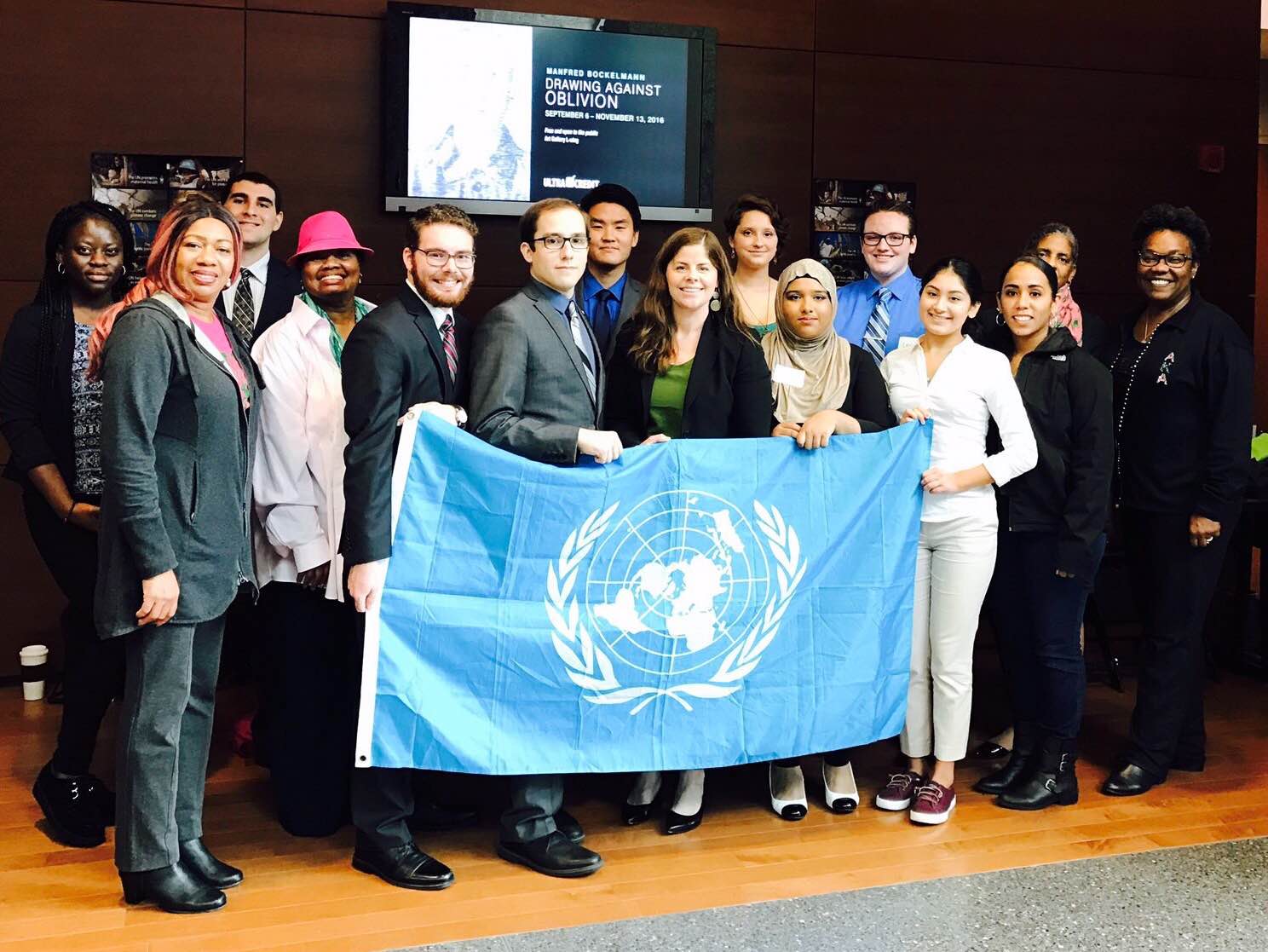This Saturday (October 22, 2016) I volunteered with Stockton’s Model United Nations to help organize a simulation for Atlantic City High School students. Stockton’s Model UN paired up with the Alpha Kappa Alpha sorority to help introduce high school students to the Model UN experience, as well as learn about diplomacy and the actual United Nations. October 24 is Model UN’s birthday, so the event was also to help celebrate the organization.
I was rather nervous for the event because I had only been in a simulation once before during Model UN club so I was still quite unfamiliar with how simulations run and what to do. The volunteers were supposed to team up with one or two high school students to help them become acquainted with Model UN, so I doubted I would be much of a help for them. Thankfully for me (though unfortunate for the event itself), only one person from Atlantic City High School showed up. Apparently, there had been multiple events offered to the Atlantic City HS students during the same time as the Model UN Simulation, and none of the students chose our program. Despite this, we decided to complete the simulation ourselves for practice, since many of the volunteers, like myself, didn’t have very much experience in Model UN. We had two simulations ready to go, one on Global Development and Sustainability and another on Combatting Racism, and we decided on the Combatting Racism one.
I represented France, whose primary problems with racism included xenophobia, due to the large amounts of illegal Syrian and Pakistani immigrants in France, and was facing prison overcrowding because of that. In my opening speech, I explained the problems France was facing and asked the other delegations for money to help fund educational programs so that the French public could understand what the immigrants were going through, help with prison overcrowding, as well as for countries who were not accepting many Syrian Refugees (like the United States) to start to.
Many other countries also felt as though education could help combat the racism in their country, as well as that the racist political rhetoric many politicians spread encourage citizens to take violent actions against minorities. There were eight countries, including France, that sponsored and wrote a resolution on Education and Political Reform. The resolution stipulated that .07% of UN countries GDP would go toward a fund to create educational programs that would focus on language, cultural differences, and world issues, and the programs would be monitored by UN officials. In addition, the Political Reform part of the resolution was modeled off a Kenyan law which forbids hate speech from politicians, elected officers, and others in positions of state and government office. The resolution passed almost unanimously, which was a proud moment for myself and the other co-sponsors of the bill. We even got Russia on board, and they were originally against helping solve any other country’s racism. Despite a rough start, the simulation ended up being quite successful.

